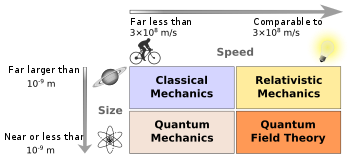Definition and Scope of Classical Physics
– Classical physics refers to a group of physics theories that predate modern theories.
– It is used when modern theories are unnecessarily complex for a particular situation.
– Classical physics includes pre-1900 physics and does not incorporate elements of quantum mechanics and relativity.
– Classical theory in quantum mechanics refers to theories that do not use the quantization paradigm.
– Classical field theories, such as general relativity and classical electromagnetism, do not use quantum mechanics.
Comparison with Modern Physics
– Modern physics is a term that may refer to quantum physics or 20th- and 21st-century physics in general.
– Classical physics is valid for physical objects larger than atoms and molecules.
– Classical physics breaks down at the atomic level and does not provide a correct description of nature.
– Classical electrodynamics describes electromagnetic fields and forces at length scales with negligible quantum effects.
– Classical physics is generally characterized by complete determinism, unlike quantum physics.
Computer Modeling and Manual Calculation, Modern and Classic Comparison
– Computer modeling in quantum and relativistic physics is essential.
– Classical physics is considered the limit of quantum mechanics for a large number of particles.
– Classical mechanics is derived from relativistic mechanics at low velocities.
– Computer modeling aims to be as real as possible and cannot rely on classical physics for reliability.
– Energy criteria determine whether to use relativity or quantum theory in computer models.
Related Concepts
– Physics portal: a portal dedicated to physics-related information.
– Glossary of classical physics: a collection of terms and definitions in classical physics.
– Semiclassical physics: a field that combines classical and quantum physics.
References
– Weidner and Sells, ‘Elementary Modern Physics’, 1968
– Morin, David, ‘Introduction to Classical Mechanics’, 2008
– Barut, Asim O., ‘Introduction to Classical Mechanics, Electrodynamics and Classical Theory of Fields & Particles’, 1980
– Einstein, Albert, ‘Relativity’, 1920
– Wojciech H. Zurek, ‘Decoherence, einselection, and the quantum origins of the classical’, Reviews of Modern Physics, 2003 Source: https://en.wikipedia.org/wiki/Classical_physics
Classical physics is a group of physics theories that predate modern, more complete, or more widely applicable theories. If a currently accepted theory is considered to be modern, and its introduction represented a major paradigm shift, then the previous theories, or new theories based on the older paradigm, will often be referred to as belonging to the area of "classical physics".

As such, the definition of a classical theory depends on context. Classical physical concepts are often used when modern theories are unnecessarily complex for a particular situation. Most often, classical physics refers to pre-1900 physics, while modern physics refers to post-1900 physics, which incorporates elements of quantum mechanics and relativity.
